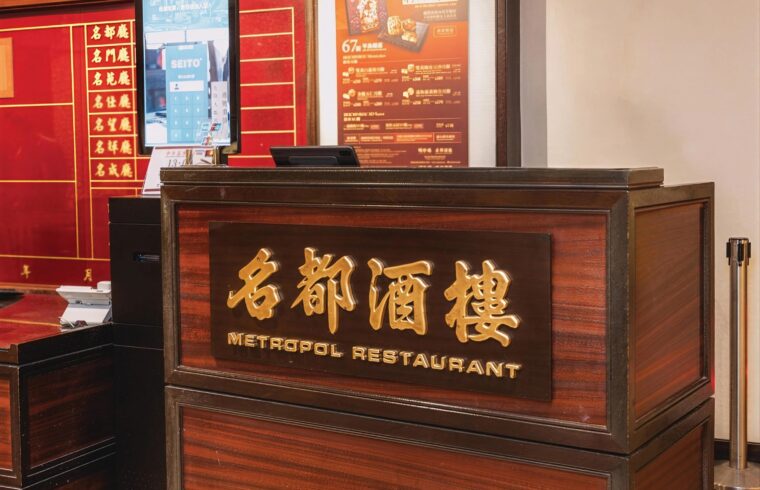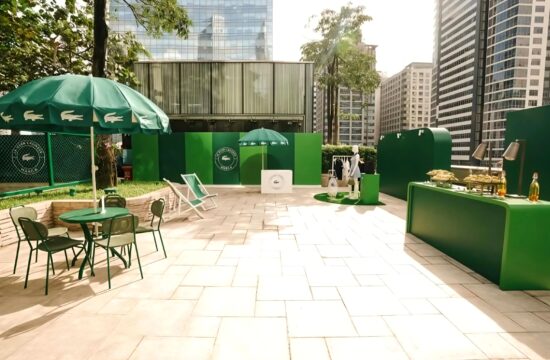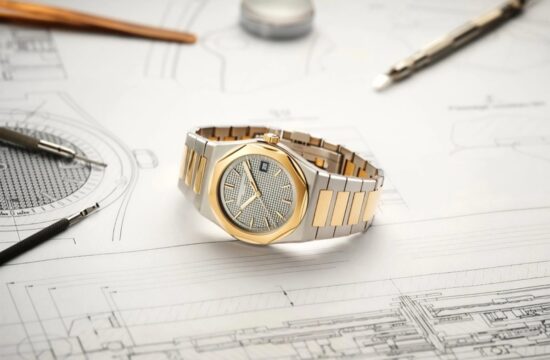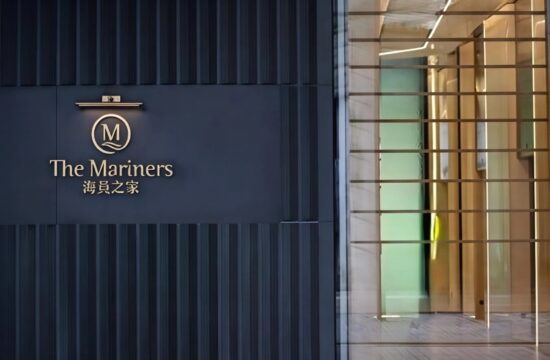On a humid September afternoon, the Metropol Restaurant in Admiralty was packed wall to wall—office workers in tailored shirts, elderly couples nursing tea, and overseas Filipinos trickling in from nearby floors of the United Centre. Everyone seemed to have heard the news: after 35 years, the iconic dim sum hall would serve its last meal on September 27.
To the uninitiated, Metropol was just another old-school Cantonese restaurant. But for Hong Kong’s Filipino community, it was a touchstone—part lunch spot, part sanctuary. Perched on the fourth floor of the United Centre, it shared a roof with the Philippine Consulate General, the Philippine Overseas Labor Office (POLO), and the OFW Global Center. Within that building, bureaucratic errands and homesickness often mingled, and Metropol stood as the soft landing between both.
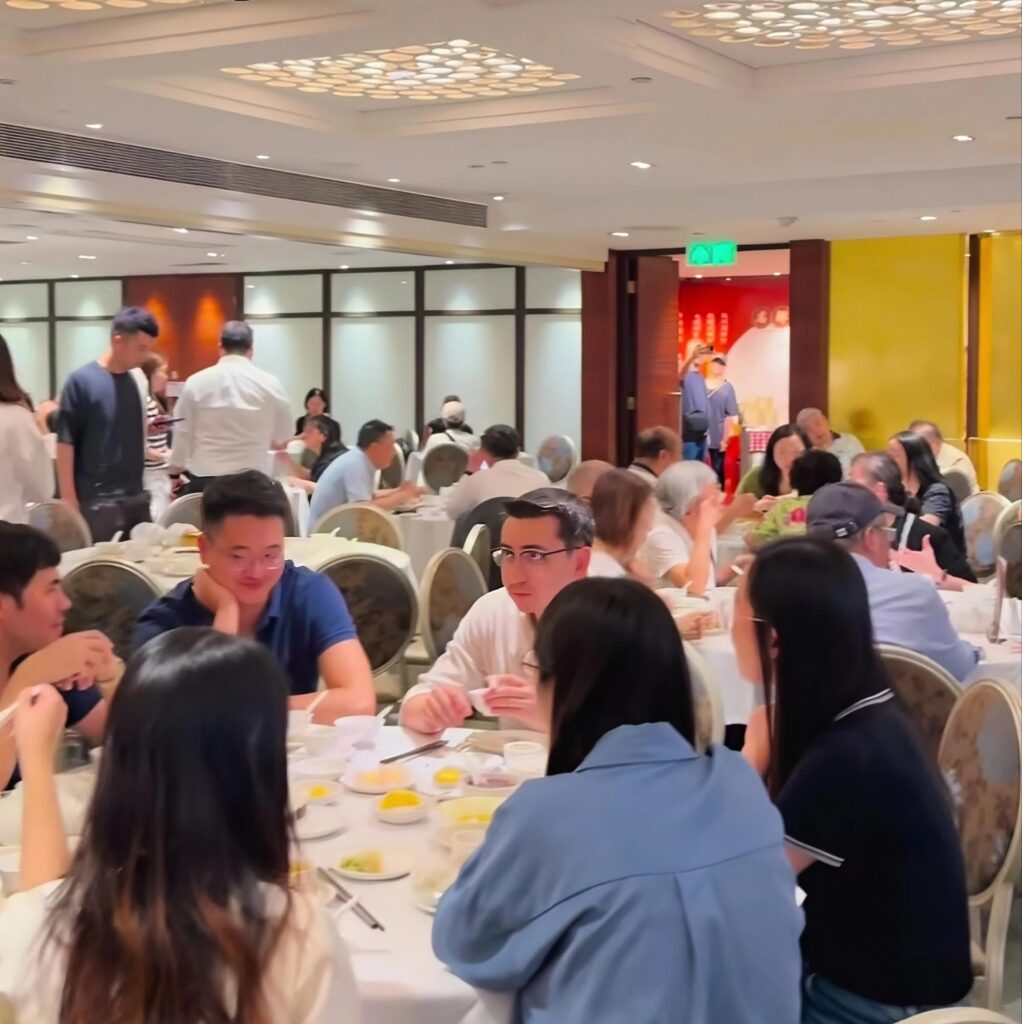
After consular appointments, OFWs would step out of elevators and into the restaurant’s glow. Here, they could exhale. It was where domestic workers gathered after long shifts, where diplomats shared lunch, and where first-time arrivals to Hong Kong found their bearings over hot tea and har gow. In those moments—between stacks of bamboo baskets and the shuffle of pushcarts—the distance from home felt shorter.
At its height, Metropol was among the few restaurants that still kept the art of the dim sum trolley alive. The air often trembled with the clatter of teacups and the music of shouted orders. Elderly servers in crisp uniforms pushed carts laden with bamboo steamers. Aunties called out “Har gow!” and “Char siu bao!” as they circled the room. At central stations, rows of glass cabinets offered steamed and fried delicacies. One had only to flash a table’s chopstick card, and dishes were recorded with a stamp.
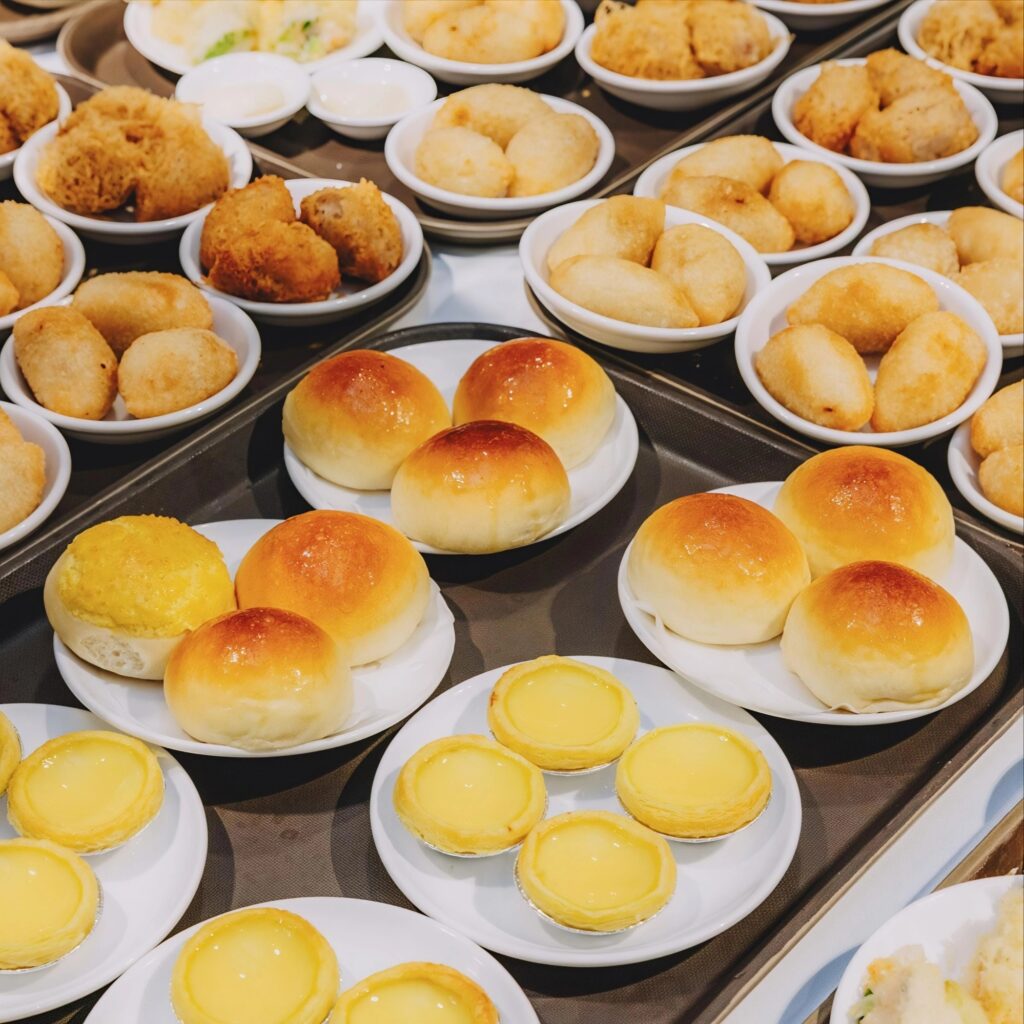
The restaurant’s 1,200-seat scale was a product of Hong Kong’s heyday in the 1980s and 1990s. It catered to wedding banquets, business functions, and sprawling family gatherings—occasions too grand for hotel function rooms alone. Yet it retained a rare modesty: less about status, more about gathering.
When the news of its closure spread, patrons old and new flocked back. “My father worked nearby, so we would always come here for dim sum,” one diner recalled in an online post. The crowds were relentless. Some waited 15 minutes for a table. Others paced the consulate corridor first, then the restaurant foyer—reluctant to let go of a familiar solace. Old regulars clasped tissue packets to their faces; others snapped photos of the emptying hall. Dozens stayed until the final lunch service, shaking hands with longtime servers and whispering thanks for “all your hard work through the years.”
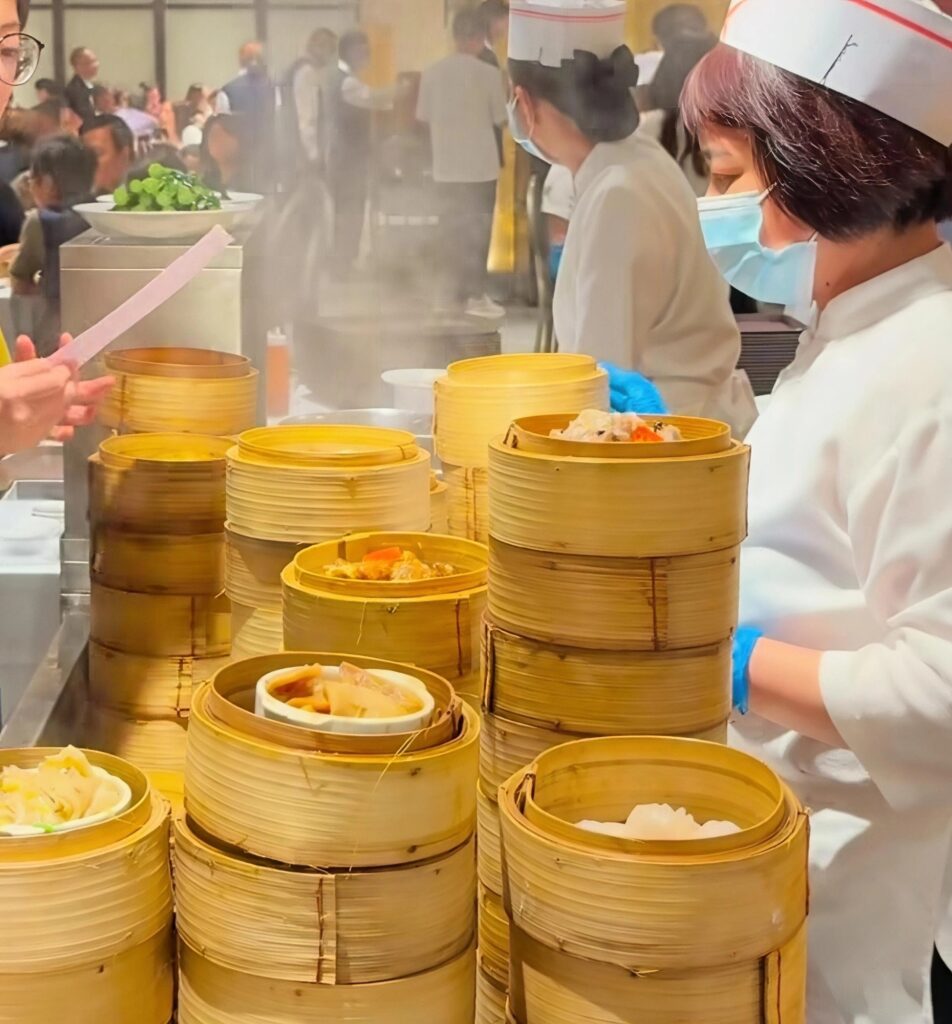
For the Filipinos who passed through its doors each day, Metropol’s closing struck closer to the heart. There is no longer a post-consular lunch stop, no dim sum altar in their daily pilgrimage. In its place, the community will scatter—to smaller cafés, to distant districts, to fleeting alternatives. Some will remember: “I had my first balikbayan lunch there.” “I took my passport photos and then ordered siu mai.” “I met my first OFW friend at table 28.”
In time, the servers’ starched mandarin tops will fade, the trolleys will be stored, and the chatter will fall silent. The space itself—reportedly sold to the Hong Kong University of Science and Technology for HK$354 million—will take on a new identity. But for those who marked their days by its rhythms, Metropol remains more than a restaurant. It was a place where Hong Kong’s relentless pace softened, where tea steamed beside paperwork, and where being Filipino in a foreign city felt, for an hour or two, a little less lonely.
Its end marks more than the loss of a restaurant. For many Filipinos in Hong Kong, it closes a chapter of community life—one written between floors of bureaucracy and moments of belonging. Admiralty’s United Centre still hums with consular activity, but the aroma of freshly steamed dim sum no longer drifts down its hallways.

